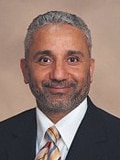
More Child Health and Safety Articles
Tooth Care For Your Infant
As soon as your child gets his first teeth, you should begin cleaning them after feedings with a moist gauze pad or washcloth. When your child is comfortable with a toothbrush, brush his teeth twice a day with an extra-soft toothbrush. Use a pea-sized amount of toothpaste if your child likes toothpaste. If not, its fine to brush without toothpaste. Gently floss your childs teeth each day, and pay particular attention to areas where the teeth are close together.
Help your child brush and floss until hes seven to ten years old and able to effectively keep the plaque off his teeth by himself. After that, check his efforts occasionally.
Its a good idea to keep some disclosing tablets on hand. The vegetable dye in disclosing tablets stains missed plaque red and makes it much easier to see.
Fluoride is an important preventive tool for infants. Its important that we first check the fluoride level of your childs primary source of drinking water. We sometimes prescribe fluoride tablets, and generally recommend fluoride toothpaste and fluoride treatments after cleanings.
The most serious dental problem for young children is called early childhood caries or bottle syndrome. It is caused by the constant presence of milk, formula, or fruit juice in a childs mouth during the night, during breastfeeding, during naps, or for extended periods during the day. Use water at these times to prevent this severe decay of baby teeth, and always clean your childs teeth immediately after each feeding.
Children learn best by imitation, so let them watch you as you brush and floss your teeth. Regular praise of their homecare efforts and a positive example will get your child started down the path of excellent oral hygiene.
Tips on Toothbrush Care
Do not share toothbrushes. Sharing a toothbrush could result in an exchange of body fluids and/or microorganisms between the users of the toothbrush, placing the individuals involved at an increased risk for infections.
Thoroughly rinse toothbrushes with tap water after brushing to remove any remaining toothpaste and debris.
Replace toothbrushes at least every 34 months. The bristles become frayed and worn with use and cleaning effectiveness will decrease. Toothbrushes will wear out more rapidly depending on factors unique to each patient. Check brushes often for this type of wear and replace them more frequently if needed. Childrens toothbrushes often need replacing more frequently than adult brushes.
Other Articles You May Find of Interest...
- Rest Easy: How a Custom Bedwetting Program Can Change Your Child’s Life
- Newborn Physicals In the Comfort Of Your Home
- A Complete Guide To Preparing Your Child For An Urgent Care Visit
- Nurturing Healthy Sleep Habits in Infants and Toddlers
- Tackling Education Staffing Challenges in Modern Schools
- Could Your Child Have Head Lice?
- Children Need Cheerleaders

















